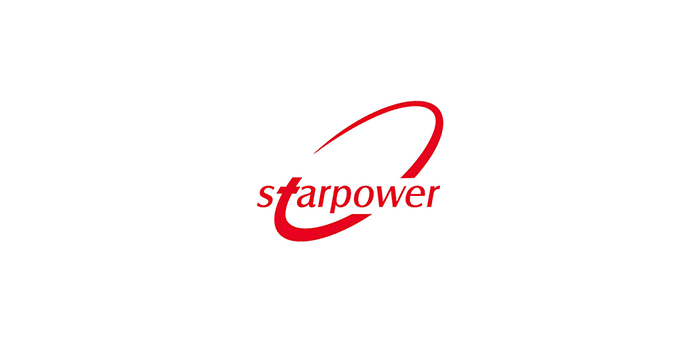
© dmitry bomshtein dreamstime.com
Analysis |
Home appliances market consolidation continues
Key players in the global home appliances market are looking to increase their market share via acquisitions and other moves in order to take advantage of ongoing strong expansion in the trade.
Worldwide shipments of home appliances are projected to reach 611 million units by year-end, up 4.8 percent from 2013.This compares to an increase of 4.5 percent in 2013. Revenue growth is forecast to be even higher, set to climb 7.1 percent in 2014, up from 5.9 percent last year, according to IHS.
“Recent acquisitions within the home appliance market show that the world’s leading and largest home appliance producers hope to become even bigger, enlarging their footprint by moving into new territories and market segments,” said Dinesh Kithany, senior analyst for home appliances at IHS. “Production is also relocating to increase efficiency and to cut down costs, while being closer to their addressable regional markets. Such developments confirm what IHS has been predicting.”
These findings can found in the reports entitled “Major Home Appliances 2013” and “Small Home & Personal Care Appliances 2014” from the Consumer Electronics service and Home Appliances research area of IHS Technology.
American makers exercise their muscle
Among manufacturers, U.S.-based Whirlpool Corp., the world’s No. 1 home appliance maker, recently announced its second largest acquisition in less than a year, with plans to buy a majority stake in Indesit Company S.p.A. of Italy, further boosting the American firm’s business in Europe. An earlier acquisition of a 51 percent stake in Hefei Rongshida Sanyo Electric is also expected to significantly enhance Whirlpool’s presence in the Asian market, especially in China, where Hefei Sanyo is the third largest appliance maker. Whirlpool had earlier signed a joint venture with another Chinese-based maker, Hisense-Kelon Electrical Holdings, for sharing research, technology and production resources. On its home turf in the United States, Whirlpool and longtime partner KB Homes, one of the largest homebuilders in the country, announced at the end of last year a new collaboration to offer the Whirlpool line of smart appliances to homebuyers.
Another American entity, commercial food-service equipment company Middleby Corp., reported stronger second-quarter results. Net sales of its home appliances’ Residential Kitchen Equipment Group was up 20.6 percent to $70.9 million, compared to $58.8 million the same time a year ago. Residential Kitchen Equipment was the business segment formed from the 2013 acquisition by Middleby of Viking Range Corp., makers of professional-style home appliances. CEO Selim A. Bassoul, Middleby CEO, said Viking has completed the initiative started in 2013 to establish its own distribution operations, through the acquisition and transition of independent distributors covering the U.S., Canada and Mexico.
European firms also get in on the action
Meanwhile in Europe, the acquisition by Spain’s CNA Group of appliance maker Fagor Electrodomesticos—which owns well-known brands Fagor, Edesa, Aspes and Spendid—strengthens the former’s position in the appliance market across several segments, including laundry, cold and cooking appliances; small electric housewares; and comfort conditioning appliances.
CNA executives said the company’s objective is to restart Fagor corporate and manufacturing activities as quickly as possible, and to bring back 840 jobs over the next four years. The CNA Group began life with the startup Cata Electrodomesticos in Torello, Barcelona province, in 1947. Later CNA acquired appliance brand Apelson (2000) and Nodor (2004). Today the company has plants in Torello, Spain; São Paulo, Brazil; and Xiao Lan, China.
On similar grounds, Sweden’s Electrolux AB has confirmed its interest in buying the home appliance business division of Kentucky-based General Electric (GE). The sale of this century-old appliances division of GE, estimated to be at least $2 billion, will provide a necessary boost to companies looking to expand in the North America market, which shows good signs of recovery and growth.
Electrolux has historically expanded through acquisitions—buying Frigidaire in1986, AEG's household division in 1994 and Chilean appliance manufacturer CTI in 2011. Remaining eager to invest in the U.S., Electrolux has recently opened a cooking-appliance plant in Memphis, Tenn. Acquisition of GE’s appliance business will not only help Electrolux to increase its current 30 percent share of appliance sales from the North America region, it will also help the Swedish maker boost sales to home builders, a key driver of the U.S. home appliances market and where GE currently has a large share.
Partnering with Asian giants
While established South Korean makers such as LG Electronics and Samsung Electronics would likely be more interested in GE’s U.S. facilities, rather than in the GE brand name, it is unclear how Electrolux might use the GE brand, as it also depends on GE’s licensing agreement with buyers.
GE also has appliances that can be seamlessly operated through a smartphone or a tablet device using its GE Brillion app. GE could have likely taken advantage of its position to expand further as the world moves toward smart devices for homes. But New York-based Quirky Inc., a five-year-old startup that uses crowdsourcing to quickly develop household products, is interested in teaming up with private-equity firms such as Blackstone Group LP to take a majority stake in GE’s appliance business, with GE retaining a piece.
Given that Samsung has recently bought connected-home startup SmartThings and U.S. air-conditioner distributor Quietside, it will be interesting to see how Quirky’s offer fits in, since Quirky currently counts GE among its financial backers after GE made a $30 million investment in November last year. GE also opened up thousands of patents to Quirky when they formed a partnership last year to develop a line of smart-home devices, including an air-conditioner controlled by smartphones.
The home appliance market will continue to see more such acquisitions and tie-ups, Kithany added. Synergies are expected not only within appliance companies but also across companies providing technological know-how, expertise and support to home automation segment.



